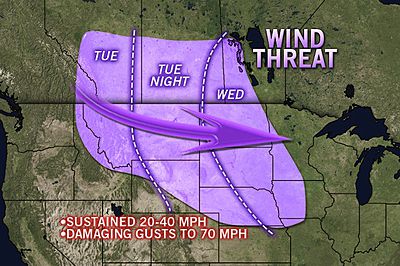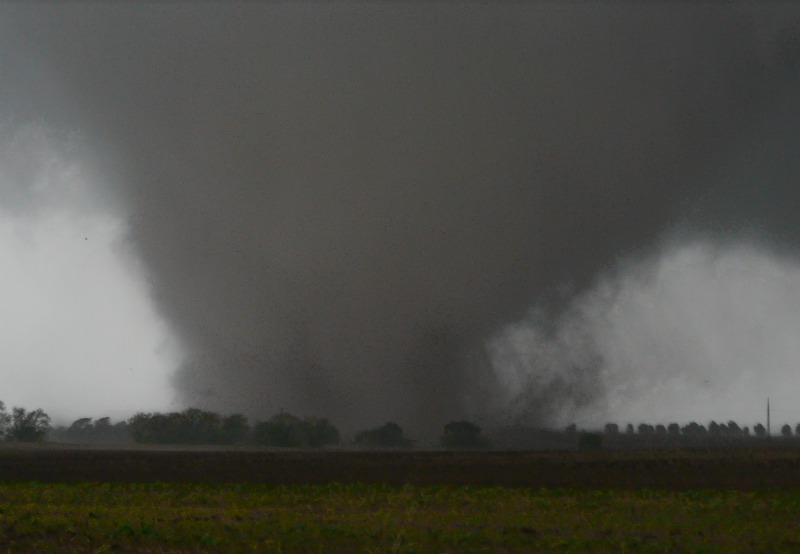
Near-Hurricane Winds Montana to Missouri Midweek

Get the world’s most fascinating discoveries delivered straight to your inbox.
You are now subscribed
Your newsletter sign-up was successful
Want to add more newsletters?

Delivered Daily
Daily Newsletter
Sign up for the latest discoveries, groundbreaking research and fascinating breakthroughs that impact you and the wider world direct to your inbox.

Once a week
Life's Little Mysteries
Feed your curiosity with an exclusive mystery every week, solved with science and delivered direct to your inbox before it's seen anywhere else.

Once a week
How It Works
Sign up to our free science & technology newsletter for your weekly fix of fascinating articles, quick quizzes, amazing images, and more

Delivered daily
Space.com Newsletter
Breaking space news, the latest updates on rocket launches, skywatching events and more!

Once a month
Watch This Space
Sign up to our monthly entertainment newsletter to keep up with all our coverage of the latest sci-fi and space movies, tv shows, games and books.

Once a week
Night Sky This Week
Discover this week's must-see night sky events, moon phases, and stunning astrophotos. Sign up for our skywatching newsletter and explore the universe with us!
Join the club
Get full access to premium articles, exclusive features and a growing list of member rewards.
This article was provided by AccuWeather.com.
Residents of the northern Rockies and northern Plains should prepare for damaging winds spanning later Tuesday through Wednesday, as a powerful windstorm sweeps through the region.
Many places from Great Falls, Mont., to Kansas City, Mo., could be hit with wind gusts between 50 and 70 mph.
Other cities in the massive wind tunnel include Rapid City, S.D.; Bismarck, N.D.; Omaha, Neb.; Denver, Colo.; and Des Moines, Iowa. The core of the strongest winds will pass south of Minneapolis.
Gusts as high as 90 mph will hammer the ridges and mountain passes of the northern Rockies.
Approaching hurricane force, these winds will likely take down tree limbs and power lines, leading to power outages, property damage and travel concerns. There is a risk of vehicle rollovers in areas where there is a crosswind, especially in the I-25 corridor.
The same crosswinds can lead to flight delays at some airports.
Get the world’s most fascinating discoveries delivered straight to your inbox.
It is possible that winds produced by a non-tropical cyclone over the north-central U.S. may be stronger than the winds experienced in Bermuda with Hurricane Rafael passing east of the islands Tuesday night.
While the storm system and its winds will peak over the Plains, strong gusts will reach into the Ohio Valley and Great Lakes region by Thursday. Gusts to 50 mph are possible in St. Louis, Chicago, Indianapolis, Detroit, Louisville and Cincinnati.
A storm system that brought drenching rain to the Pacific Northwest Monday evening will rapidly strengthen as it pushes east of the Rockies, near the U.S./Canada border during the middle of the week.
Expert Senior Meteorologist Alex Sosnowski contributed to the content of this story.
© AccuWeather.com. All rights reserved. More from AccuWeather.com.
The only sure thing about weather forecasts is that they’re wildly different all over the planet. Test your knowledge on the wild ranges in temperature, precipitation and more.
Extreme Weather Facts: Quiz Yourself
 Live Science Plus
Live Science Plus











